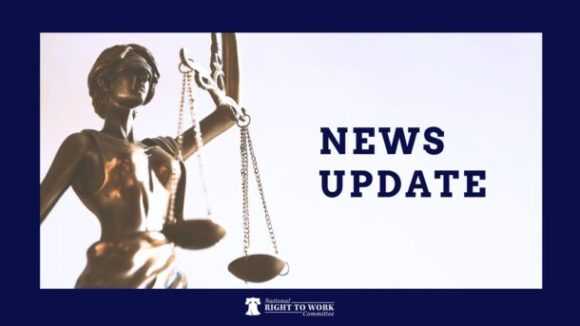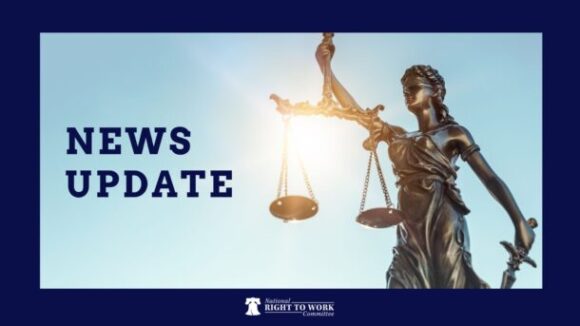Committee Tells Politicians: Stop Waffling
Members Insist They Keep Pro-Right to Work Campaign Promises
 The National Labor Relations Board (NLRB) continues to find new ways to compel employees into the hands of Big Labor; this time ignoring the Constitution and past Supreme Court rulings. According to the Washington Times’ Patrick J. Reilly, this is not the first time:
The National Labor Relations Board (NLRB) continues to find new ways to compel employees into the hands of Big Labor; this time ignoring the Constitution and past Supreme Court rulings. According to the Washington Times’ Patrick J. Reilly, this is not the first time:
On May 26, the Chicago regional director for the National Labor Relations Board (NLRB) declared that St. Xavier University, a Catholic institution established by the Sisters of Mercy, was not sufficiently religious to be exempt from federal jurisdiction. The ruling came just four months after a similar ruling against the Christian Brothers’ Manhattan College, which has appealed to the national board for a reversal.
The U.S. Court of Appeals for the District has twice already ordered the NLRB to cease harassing religious colleges and universities. In 2002 and 2008 rulings, the court reversed the NLRB and exempted religious institutions from requirements of the National Labor Relations Act.
Citing the 1979 U.S. Supreme Court ruling in NLRB v. CatholicBishopofChicago, etal., which exempted Catholic parochial schools from NLRB oversight, the court found that the NLRB’s extensive evaluations of whether colleges are substantially religious are precisely “the sort of intrusive inquiry that CatholicBishopsought to avoid.” The Supreme Court had found that NLRB jurisdiction over Catholic schools “will necessarily involve inquiry into the good faith of the position asserted by the clergy administrators and its relationship to the schools’ religious mission. … It is not only the conclusions that may be reached by the Board which may impinge on rights guaranteed by the Religion Clauses, but also the very process of inquiry leading to findings and conclusions.”
Nevertheless, the NLRB has never dropped its unconstitutional “substantial religious character” test, instead forcing multiple Catholic and other religious colleges to comply with federal labor law and regulations. Ultimately, it may require another Supreme Court ruling to set the NLRB straight.

Members Insist They Keep Pro-Right to Work Campaign Promises

The Foundation’s brief before the High Court in Starbucks v. McKinney discusses how NLRB officials use this radical assumption to urge federal courts to hit employers with “10(j) injunctions” that coerce the employers to give into certain union-demanded behavior.

Federal labor board rejected all Unite Here Local 274 union arguments for blocking Philadelphia International Airport employee-requested election